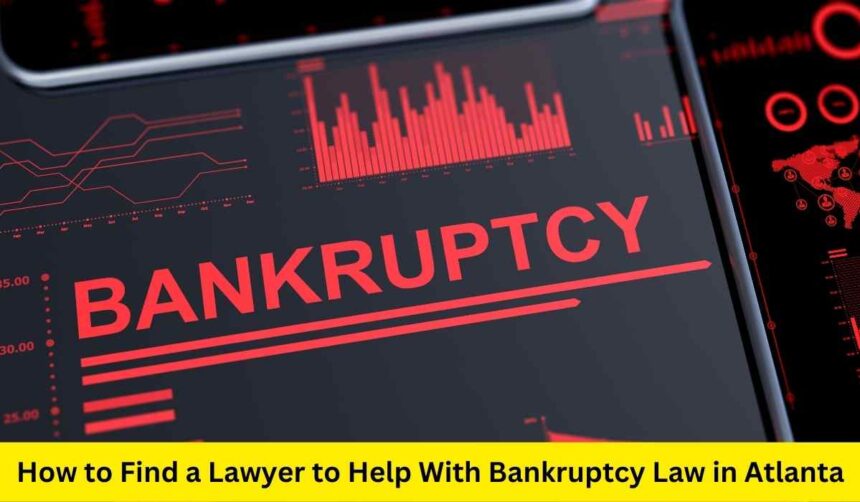Bankruptcy Help: The process of filing for bankruptcy in Atlanta can be a little daunting. If you’re new to the process or you’re not sure whether to file a Chapter 7 or a Chapter 13, you may want to consider getting some help from a lawyer. Here are some of the ways you can go about finding a lawyer.
Working with a lawyer
If you are struggling with debt and are looking for a way to get out of the financial mess, filing for bankruptcy might be a good option. However, it is important that you find bankruptcy lawyers to help with bankruptcy law in Atlanta. Fortunately, there are several Atlanta, Georgia attorneys that can provide the legal counsel you need.
For instance, the Law Offices of D. Villanueva, LLC offers services such as consumer bankruptcy and simple wills. They also offer free consultations and guarantee personal attention from their attorneys.
Another legal firm that provides bankruptcy services is Burrow & Associates. The firm has offices in Atlanta, Athens, Conyers, Gainesville, Morrow, and other locations. It is also important to note that they provide free services to low-income people.
If you want to file for bankruptcy, it is important to choose a lawyer that is experienced in the bankruptcy laws of Georgia. A good lawyer can help you determine which type of bankruptcy you need, and can work to make the filing process as easy as possible.
In addition, it is important to know that there are certain exemptions under the law. You should consult with an attorney who is knowledgeable about these exemptions to protect your assets.
Bankruptcy is a very effective way to get a fresh start. It allows you to stop creditors from collecting money from you and it can prevent you from losing your property.
Chapter 7 vs. Chapter 13
If you are looking to file a bankruptcy in Atlanta, you may wonder whether you should file for Chapter 7 or Chapter 13. Both are available and have their own advantages. However, you’ll want to take a few factors into account before making a final decision.
For starters, if you file a Chapter 7 bankruptcy, you’ll be able to get rid of most of your debt. This is particularly useful for people with low incomes. But, you will still need to keep paying some of your unsecured debts.
On the other hand, filing a Chapter 13 bankruptcy allows you to keep your house and other assets. You’ll also be able to catch up on past-due mortgage payments. In addition, you’ll have the option to erase second mortgage debt.
The type of debt you have will also affect which route you should take. Chapter 7 is geared towards discharging unsecured debt, while Chapter 13 is more focused on catching up on secured debt.
When you file for a bankruptcy, you’ll have to pass a means test. This is based on your disposable income and family size. It will determine if you can repay your debts after essential expenses.
If you don’t pass the means test, you may be denied. If you do qualify, you’ll have to decide if you want to pay off your debts through a repayment plan, or discharge them in a chapter 7 case.
Upsolve Learning Center
Upsolve Learning Center is a nonprofit organization that offers free bankruptcy help to Atlanta residents. While it’s not going to cure all your debt, it can make the process more understandable and less frightening. Whether or not you actually file is a matter of personal choice.
While there is no such thing as a one size fits all, the typical bankruptcy filing will require you to fill out a few forms and perhaps update your information before the big day. Upsolve has a few perks for its clients, including a case editor and self-service amendment capability. They also offer a number of useful tidbits, including the most important of all – a free credit report.
For some reason, many people find the dreaded bankruptcy filing a daunting task. This is particularly true for those who don’t have a lawyer on retainer. Fortunately, there are many nonprofit organizations out there that provide free legal services. As long as you meet their requirements, you’ll likely be on your way to financial freedom in no time. There’s even a user group on Facebook where you can get advice and support from those who’ve gone through the process before you.
The company has a number of other notable offerings, including free bankruptcy assistance and debtor education classes. They have an interesting history that includes seed funding from the likes of the Robin Hood Foundation, the Legal Services Corporation, and the Federal Reserve.





